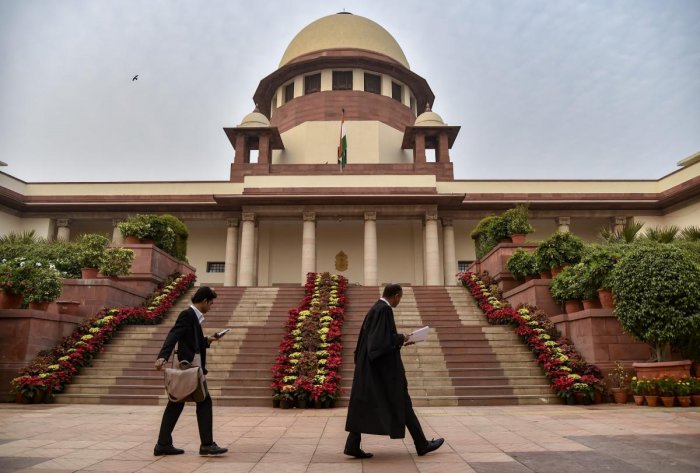‘Can Sexual Intimacy Between A Live-In Couple Be Termed Rape?’
Mar 2, 2021 | Pratirodh Bureau
On Saturday, Supreme Court judge Justice P S Narasimha said that the amount of litigation in India is unimaginable and it will take a long time to complete the existing pendency (Representational Image)
The Supreme Court, while examining the issue of consensual sex between a couple living together, has sought to know whether sexual intercourse between them can be termed as ‘rape.’ The top court also stayed the arrest of a man accused of raping his former partner for eight weeks and said that the trial court will decide on the question of the liberty of the petitioners in the case.
A bench headed by Chief Justice SA Bobde and comprising Justices AS Bopanna and V Ramasubramanian said, “If a couple is living together as man and wife…the husband may be brutal, but could the sexual intercourse between the couple, who are living together….be termed as rape?”
The top court made these observations while hearing a plea of a person accused of rape by a woman, who had been in a live-in relationship with him for over two years. The woman had filed an FIR for rape after the man married another woman.
Senior advocate Vibha Dutta Makhija, representing the accused, contended before the bench that the couple used to work together, and they were in a live-in relationship for over two years. The apex court bench, however, noted that “making a false promise for marriage is wrong.”
According to advocate Aditya Vashisth who appeared on the behalf of the complainant, the couple was in a romantic relationship, but the woman had clearly refused sexual intimacy before marriage. Vashisth argued that his client’s consent was obtained by fraud.
The top court was informed that the couple had gone to Manali, where they participated in a marriage ritual. The petitioner denied that any marriage took place, instead, he was a live-in relationship where they had consensual intimacy.
In 2019, the Allahabad High Court had declined to entertain a plea by the petitioner to quash the FIR against him.
The petitioner, through advocate Fuzail Ahmad Ayyubi, moved the top court challenging this order. The woman’s counsel highlighted that the petitioner had also beaten up his client when they were living together and emphasised consent for the sexual act was obtained by fraud after she was made to believe that the marriage was real.
The bench observed, “No one should falsely promise marriage and break off. But that is different from saying the act of sexual intercourse is rape.” The bench noted that it had settled this matter in its earlier verdicts.
On the aspect of the petitioner beating up the complainant, the bench queried her counsel, “Why don’t you file a case for assault and marital cruelty. Why file a rape case?”
Makhija contended that the complainant had filed such complaints earlier too. “It’s a habitual act of this lady. She did same with two others in the office,” she added. The petitioner’s wife had also been made an accused in the matter, as a co-conspirator.
“There shall be a stay of the arrest of the petitioners for a period of eight weeks. Thereafter, the Trial Court will decide the question of the liberty of the petitioners. The special leave petition is dismissed as withdrawn with liberty as prayed for,” said the top court in its order.
